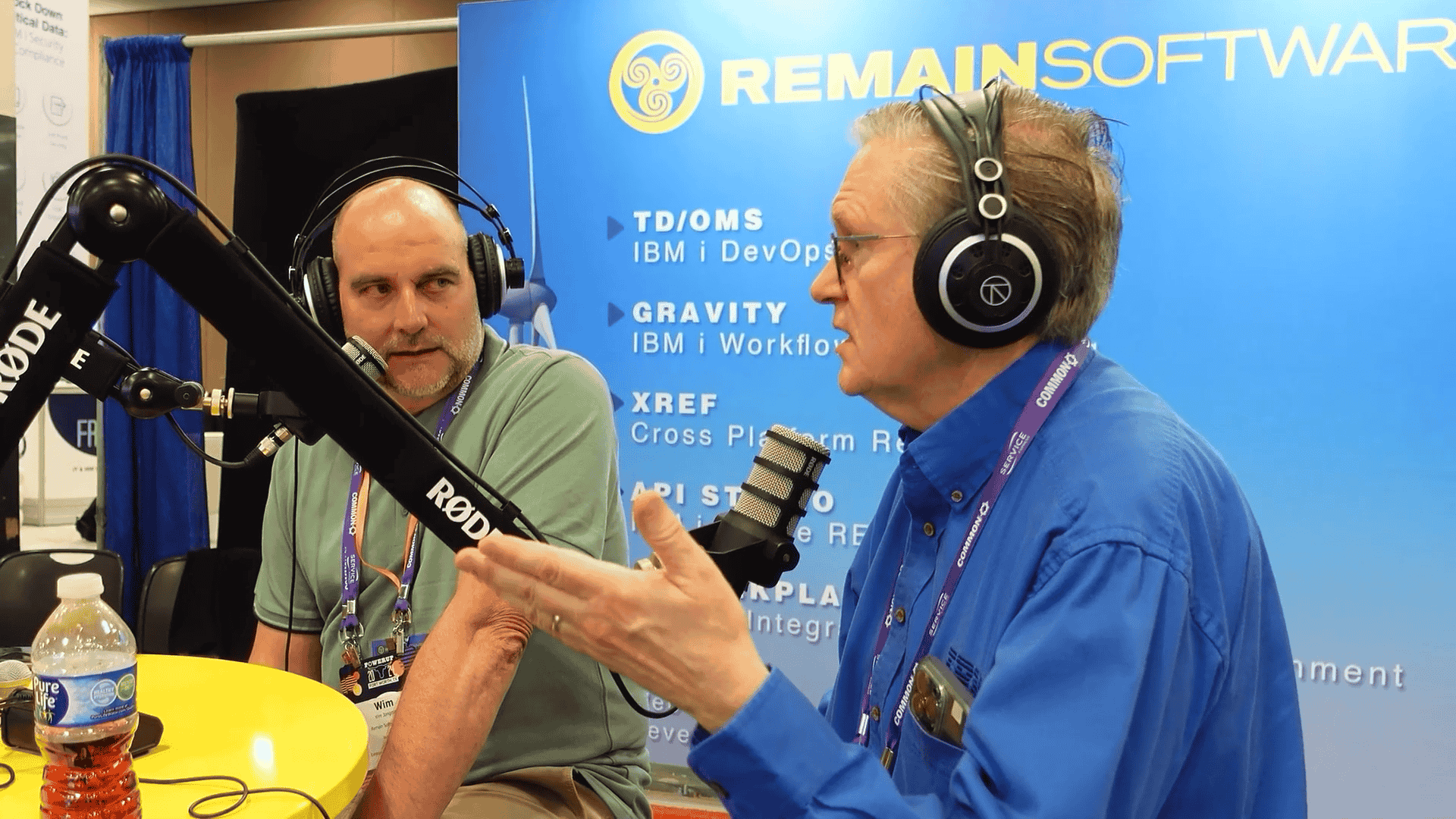Introduction:
Live from the Fort Worth Convention Center during the Common Conference 2024, we sat down with Steve Will, CTO of IBM i, to discuss the exciting integration of AI into IBM i systems. In this episode, we delve into how AI can revolutionize RPG programming and what IBM is doing to develop AI tools that can modernize legacy systems.
AI's Impact on IBM i:
Steve began by highlighting the growing demand from IBM i customers to incorporate AI into their systems. The keynote at the conference introduced a groundbreaking project aimed at teaching a large language model to assist developers with RPG (Report Program Generator) code. This initiative reflects IBM's commitment to modernizing tools for their customers and ensuring they stay ahead in today's AI-driven world.


Training the AI Model:
A key challenge discussed was the scarcity of RPG-specific training data for AI. Although various large language models like OpenAI are proficient in multiple programming languages, RPG hasn't been adequately represented. Steve explained IBM's approach to solve this: gathering code from IBM i users to train the AI. Customers who have ownership of their RPG code can contribute, allowing the model to better understand and provide assistance in modernizing outdated RPG systems. IBM is even working with its legal team to address concerns about intellectual property protection, especially for clients hesitant to share sensitive code.
From Old RPG to Modern Solutions:
Steve outlined that the focus is on transitioning older RPG and data description (DDS) codes into more modern frameworks, like SQL-based databases. The goal of the AI model is to assist developers in upgrading their code, offering suggestions on converting traditional RPG into modern RPG and SQL. In later phases, the AI will expand to tackle other technologies within IBM i, such as CL (Control Language) and panel groups.


Collaboration with the Community:
The discussion emphasized the importance of community contributions. Whether it's older RPG code or newly modernized examples, both are crucial for the project. Steve highlighted how users who have gone through their own modernization journey could provide invaluable pairing data, showcasing the before-and-after of their code transformations. This would further enhance the model’s capabilities in assisting IBM i developers.
What’s in It for Users?
In exchange for contributing to the training data, Steve explained that IBM plans to offer a productized service, similar to Watson X Code Assistant for Z systems. Subscribers would receive assistance in modernizing their RPG code, with additional benefits for those contributing to the project. Though the exact details are still being finalized, Steve expressed optimism that these AI tools would significantly ease the workload for RPG developers.


Choosing the Right AI Model:
IBM is likely to leverage its open-source Granite model, part of the Watson AI framework, to build these tools. The model will be trained specifically for RPG tasks, with future iterations to include additional languages and technologies relevant to IBM i. For developers already using tools like OpenAI, Steve mentioned that IBM’s API could be adapted for seamless integration.
Steve concluded by hinting at more detailed announcements in the coming months, as IBM finalizes the specifics of the AI project. He encouraged the community to stay engaged, contribute where possible, and be prepared to adapt as IBM rolls out these innovative tools.
Conclusion:
As the Common Conference 2024 wraps up, the future of AI in IBM i looks brighter than ever. With initiatives like these, IBM is taking significant steps to modernize legacy systems, making life easier for RPG developers. Whether you're an IBM i veteran or just beginning to work with RPG, the integration of AI promises to transform the way you code.
Stay tuned for more updates on AI in IBM i. If you’re an RPG developer or work with IBM i, consider contributing your code to help train this exciting new AI model. Together, we can shape the future of IBM i systems!

